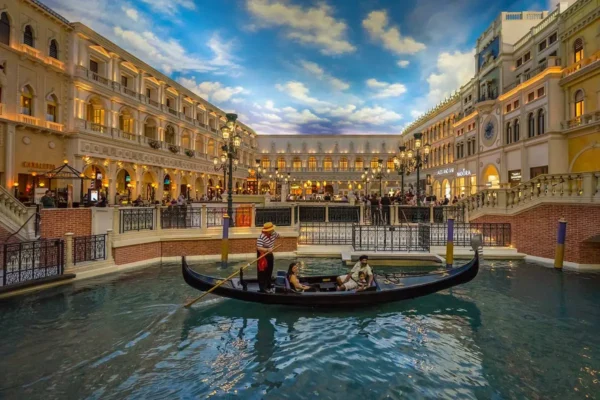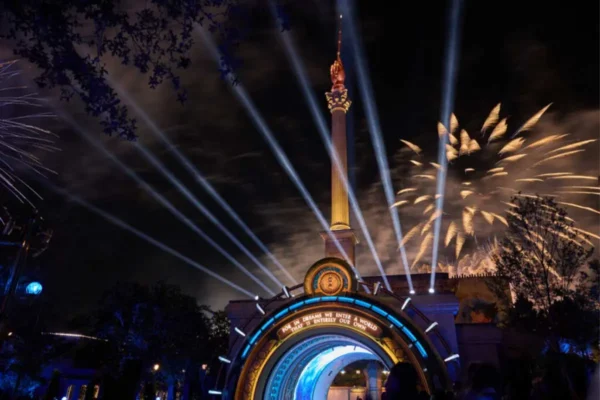by Danelle Dodds
The event planning world can be full of treacherous peaks and plunges.
As industries eagerly return to in-person meetings following a cataclysmic and isolating few years, planners are carrying the heightened pressure of creating poignant programs with more targeted results. This high-altitude demand in a taxed environment means planners are having to accomplish more than ever before.
The intensity of the planning process is amplified when executing events outside of a company’s home city. It can be a struggle to get a foothold in the panorama of possibilities, especially when traversing unfamiliar destinations. Before you is a cluttered vista with endless venues, suppliers and options littering the pathway between concept and execution. How do you know which ones are right for your group? Or which ones will deliver on their promises? How can you easily sort through the minutia to find event solutions that satisfy your stakeholders and positively impact your flock?
From the haze, a figure emerges, hands outstretched. It is your local destination management company. And they are here to be your guide.
Destination management companies (DMCs) have been a staple in the travel and events industry for more than 50 years. In the 1960s, they were known simply as “ground operators” — local companies providing straightforward solutions like airport meet-and-greet, transportation and standard tours. In the ’70s, the formats of meetings started to shift and became more sophisticated. Off-the-shelf requests turned into bespoke experiences. Customized moments, décor and entertainment for themed events, and enhanced activities started to become the norm. The term “destination management company” was introduced to more accurately describe the breadth and reach of these companies.
Today, the Association of Destination Management Executives International (ADMEI), defines DMCs as “a strategic partner to provide creative local experiences in event management, tours/activities, transportation, entertainment, and program logistics.” My simple summary is this: A DMC’s product is the city they live in.
As local experts, DMCs support planners in their event planning logistics. They are the master on the mountaintop to be scaled. They’ll help shepherd planners through the unfamiliar terrain because they understand the landscape. As trailblazers, they know the hot spots, the areas to avoid, and most importantly, they have the relationships needed to execute a successful summit.
The very best destination management companies are embedded in the cities they service, and they know a little bit about absolutely everything in those ZIP codes. They are different from the planner and the hotel in the sense that they touch every service imaginable. And if there is something they don’t know, they will learn it in short order. The amount of information they easily possess in their frontal lobe is a library of knowledge gained through years of dedicated study.
The reason they know so much is because they know so many. One of the benefits of a DMC is their curated network. A well-connected local DMC has a person with a solution in every corner.
This intimate knowledge of suppliers isn’t an accident. Any DMC worth their salt isn’t picking their partners casually. Behind their supplier selection is a deep vetting process. A good DMC will have a thorough checklist for determining if a supplier satisfies their – and their customer’s – high level of standards. They consider the things planners might not even think about.
Do you know what the ratio of servers-to-attendees is at that super slick new restaurant you saw on Google? What about the detailed safety history and insurance coverage of that offsite tour you were eyeballing? Or what are the mandatory COI or strike time requirements for that nightclub you want for your final night? Do you know which transportation company has a shortage of drivers or what their fleet inventory is? How about which venues don’t have kitchens on their main floors? Or which locations must outsource their tables and chairs? Not knowing the answers to each one of those questions can be a potential pitfall or money trap in the planning process. DMCs cut through the noise to provide only the best of solutions.
Their job is to advise planners on how those suppliers will directly impact what they are trying to achieve. And that is because a DMC works only for the planner. Unlike a direct supplier, they have no agenda aside from the planner’s agenda. They aren’t trying to sell a space, or an experience or an opportunity. They have no skin in the game. A solid DMC partner is an extension of a planning team and will have only their client’s best interests in mind. Which means planners have someone on the ground that is actively working on their behalf.
It’s a common misconception that one will spend more when partnering with a DMC. The truth is that a DMC will usually have a lot of buying power in their marketplace. An annual convention represents a one-off event in a calendar year for a supplier. DMCs, on the other hand, represent a full year of opportunities for them. DMCs negotiate with their suppliers for enhanced offerings, favorable pricing and complimentary upgrades.
Another cost savings comes in the form of time. There is a value to a planner’s time, and the number of actual hours that a DMC can save their customer is immeasurable. You see that in the “one-stop-shop” nature of their design. Coordinating an event requires many, many suppliers. That means an avalanche of information that must be sorted through. Contracts, legal documents, invoices, countless individual phones calls and emails can easily bury a planner.
DMCs provide one point of contact, and they orchestrate all the necessary elements behind the scenes. Planners only have to email or call them, sign their contract, and pay their bill. Not only is this liberating in terms of a to-do list, but this can also be especially appealing for those companies with detailed procurement or legal teams. Rather than redline 40 different supplier contracts, a planner’s team will focus on one document, which means things can get moving much quicker.
The one-stop-shop is also a godsend when considering the most significant reality in the event planning world: change. “Life happens when you’re busy making other plans,” says John Lennon. That has never been truer than in the event world. When a major shift pops up, to-do lists get infinitely longer and more complicated. Unexpected plot twists in the form of cancelled flights, surges in registration or end clients making last minute changes on a walk-thru, require a well-connected person who can be nimble and immediately jump into action.
Operationally, DMCs help take the pucker out of the process. Not only are they navigating the contracted services to the finish line, they are also taking into consideration real time influences that may impact an end result. Everything from inclement weather to traffic patterns is part of their final once over. Their keen eye for detail allows them to deliver – and pivot – as promised. Having a local partner to take care of the numerous logistical revisions behind-the-scenes allows planners to focus on other things.
The list of benefits is endless. A DMC partner will be a beacon in all phases of the planning process. And a partnership can be a career spanning relationship that helps planners navigate the mire to breathtaking peaks. In a world of possibilities, it helps to have a guide on the inside.






























